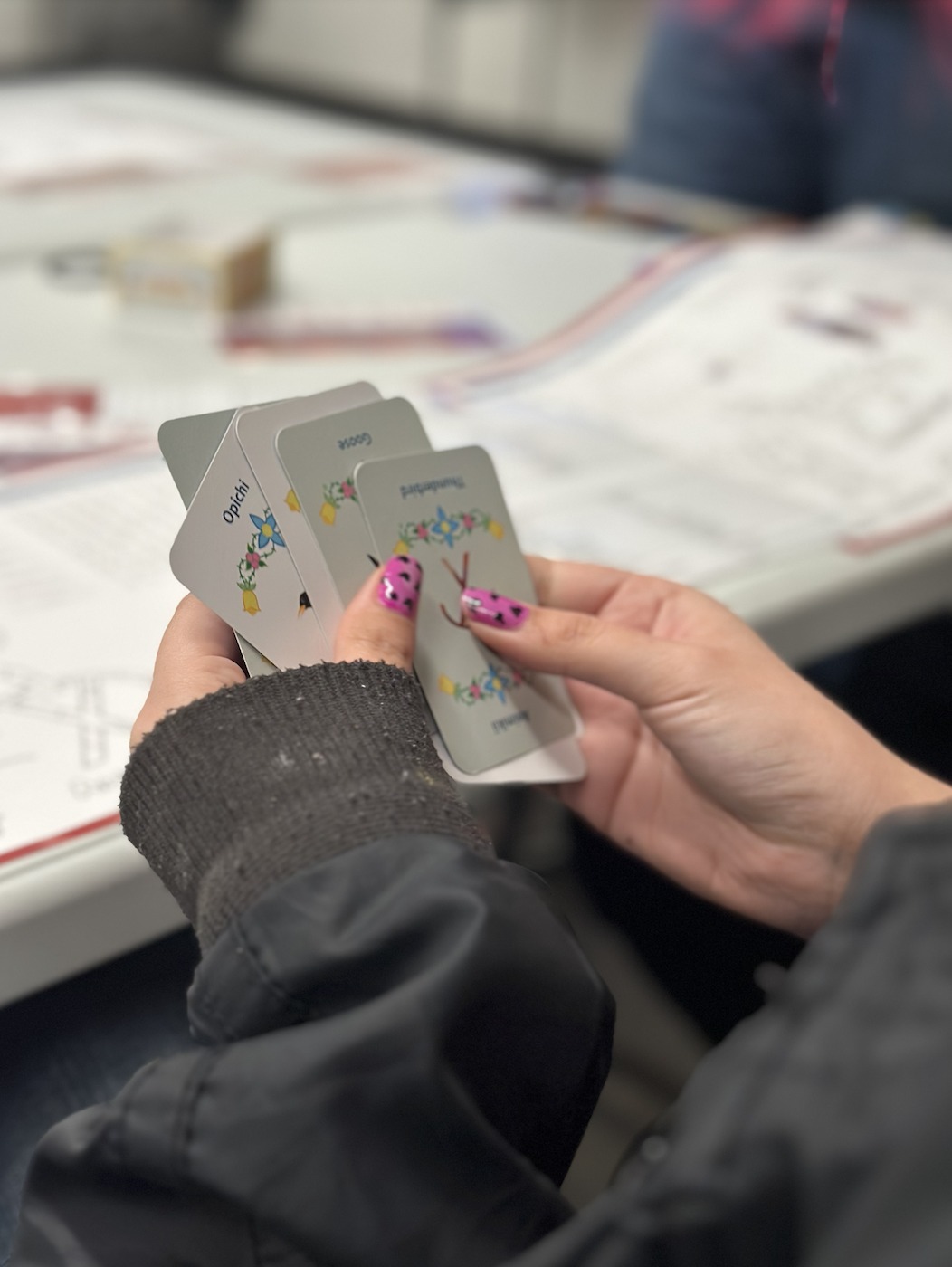Ask any six-year-old and they’ll tell you just how to play the classic game of Go Fish: Get a handful of cards. Try to get four that match. Repeat as attention spans allow.
But swap out the fish for owls and say “gookooko’oo” instead of “go fish,” and you have Bineshiiyag: one of several new amusements in the Nashke Native Games award-winning line.
Launching a year and a half ago, the three-person business is trying to bolster Ojibwe language and culture in the Midwest—in a fun, accessible (not to mention, effective) way.
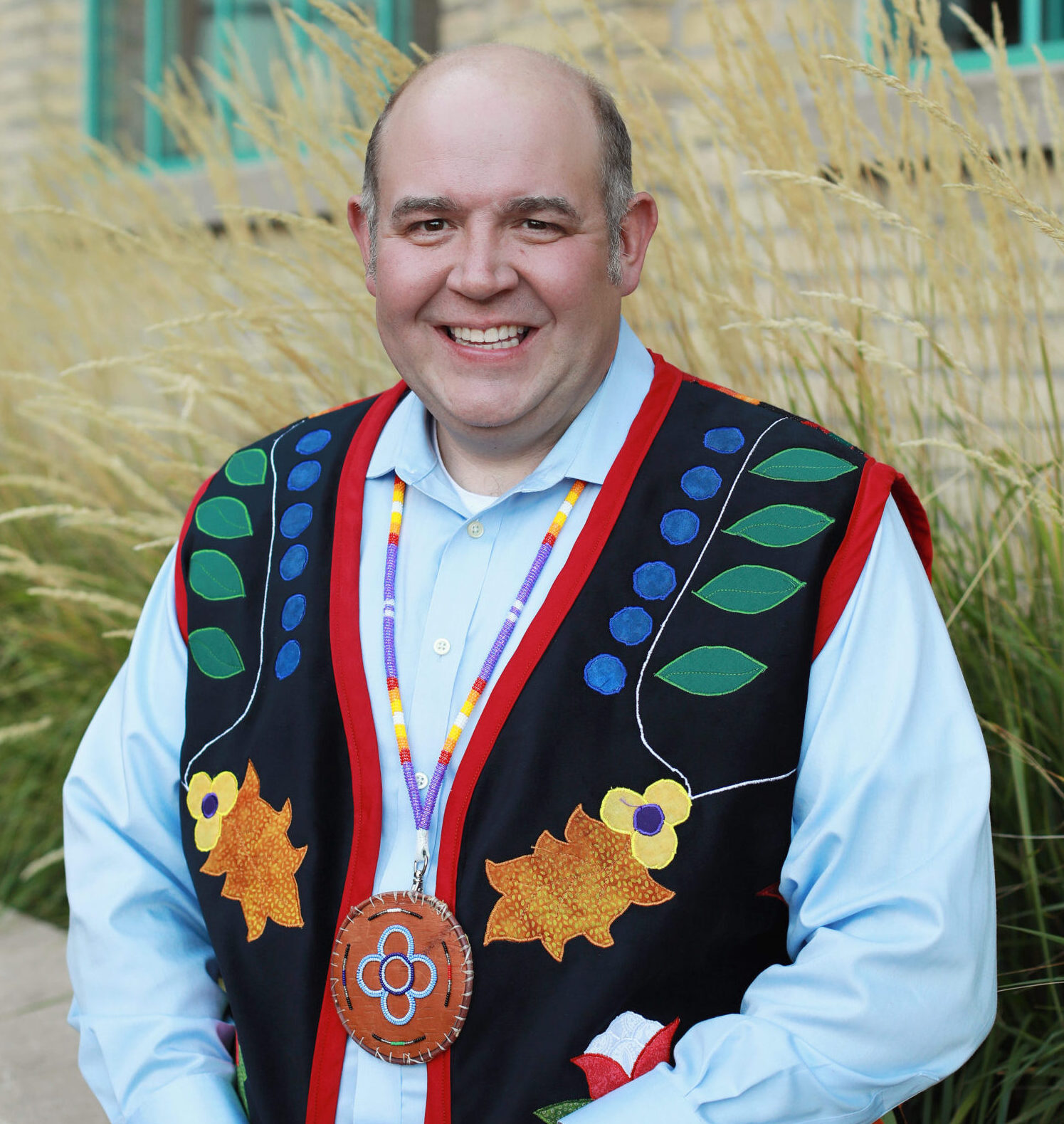
“Our mission is to increase awareness and the power of learning through gameplay. And boy, we just see it come to fruition every day,” says founder and CEO Tony Drews “Chi-Noodin” (Big Wind).
Language learners, teachers, families, and curious board-gamers alike can purchase the games, ranging from modern takes on traditionals (like Bagese: The Bowl Game) to fast-paced fur trade-simulation kits with puzzles and tile matching challenges (like Mii Gwech).
The games are an avenue for discovery; they can be played in Ojibwe or English (Dakota expansion packs coming soon!) Here, words are intentionally not forgotten.
Drews says there are less than 700 first-language Ojibwe speakers in the U.S.
“And if we don’t do something, we’re gonna become known as the people who were the Ojibwe,” he says. “Native history is Minnesota history. And without a spark, our youth aren’t gonna learn it.”
Drews’s great-grandmother only spoke Ojibwe. Her daughter was sent to Pipestone Indian Training School and now, Drews’s father doesn’t know more than four words in Ojibwe.
“It took one generation to strip my family of its culture, its language and the millennium of our culture,” Drews says. “We can’t talk about language and culture separately. They’re intertwined.”
Take the word mindimooyenh. Somebody who holds the family together. A term of high respect for an elderly woman.
“If you call someone an old woman in English, that’s a dig, right? So if we lose that word, we lose the cultural perspective of how we truly look at elderly women,” Drews says. “And the same with elders. We call our elders gichi-aya’aa: ‘the Great Beings.’”
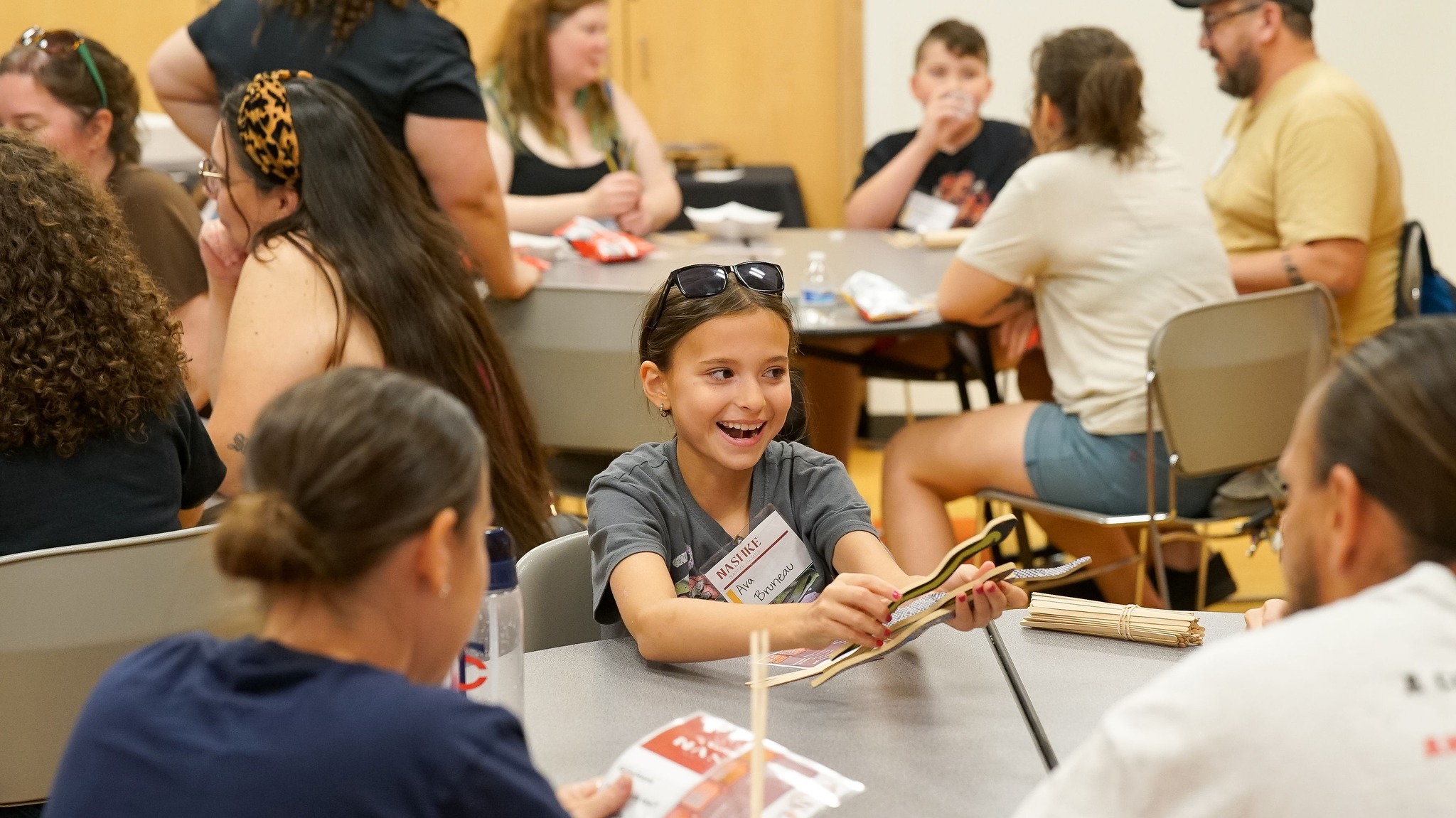
Second-grade teacher Lisa Schussman’s students have played Ginebig: The Snake Game, Makizinataagewin: The Moccasin Game, and Bineshiiyag in her Lincoln Elementary classroom.
She loans out take-home kits at the Bemidji, Minnesota, school where many Native students attend; the area is surrounded by the Leech Lake (Ojibwe), Red Lake (Chippewa), and White Earth reservations.
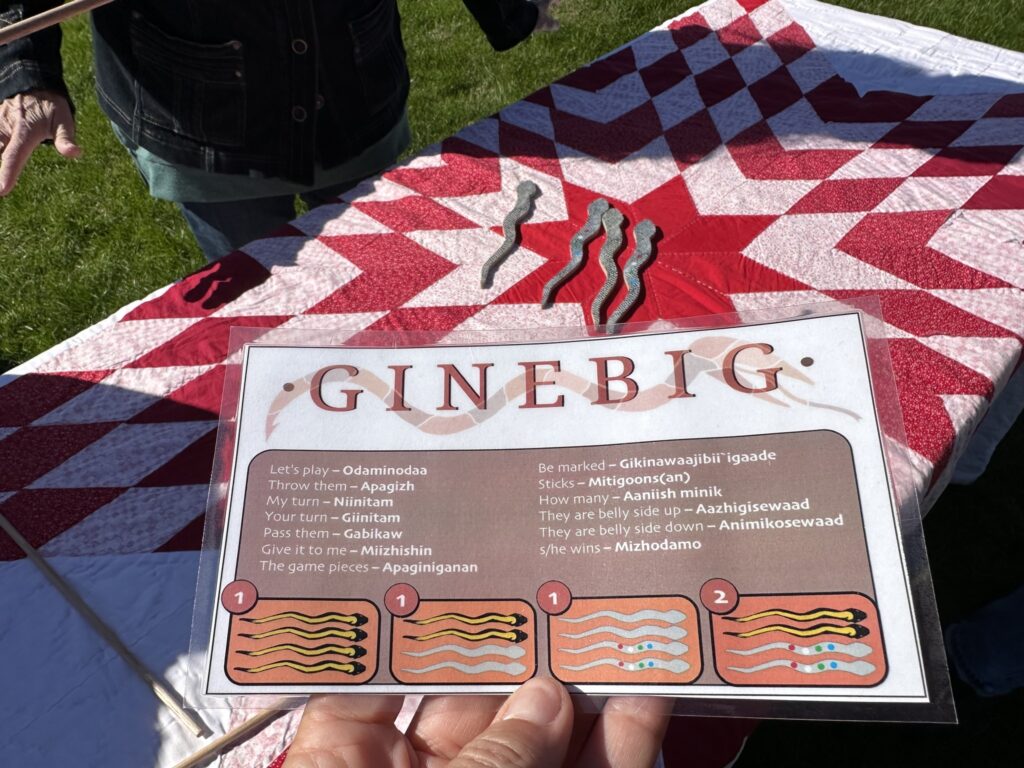
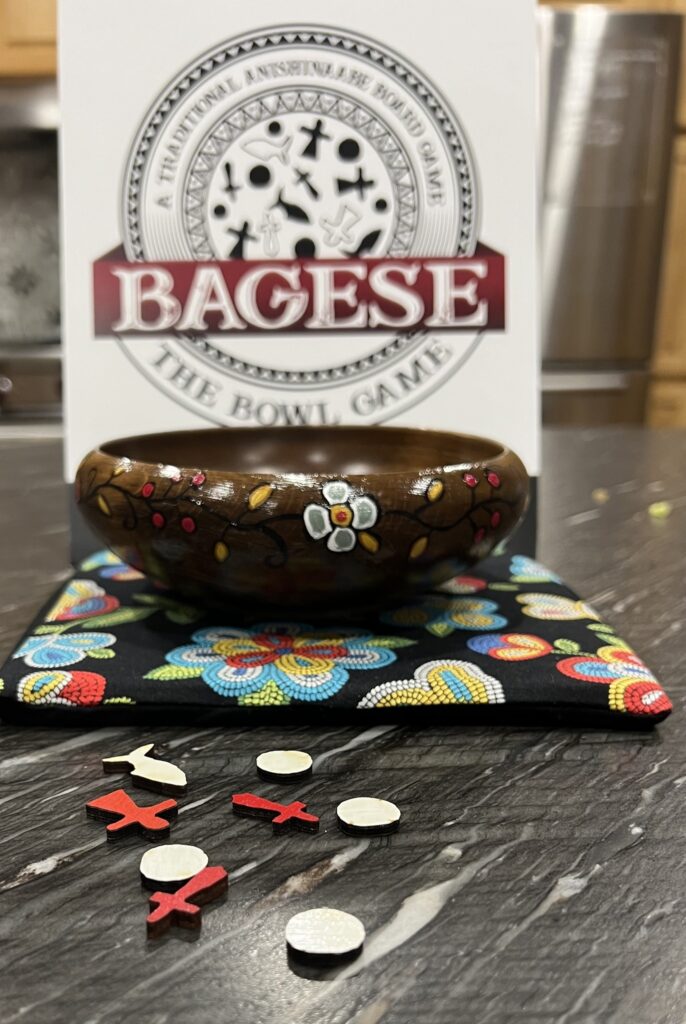
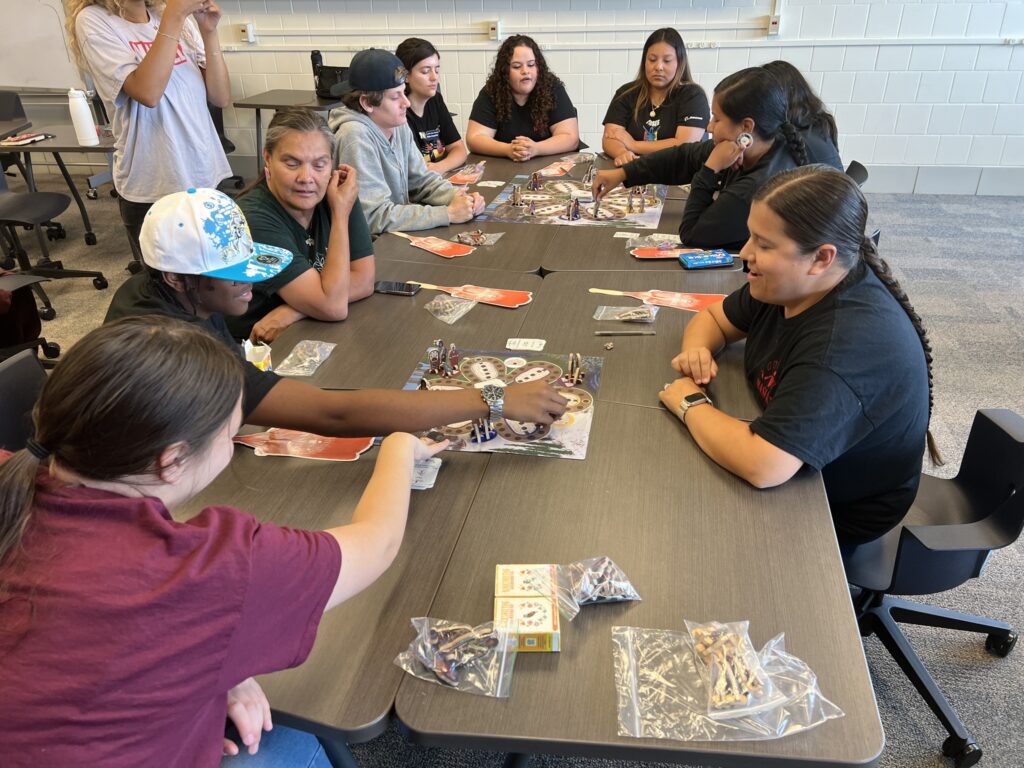
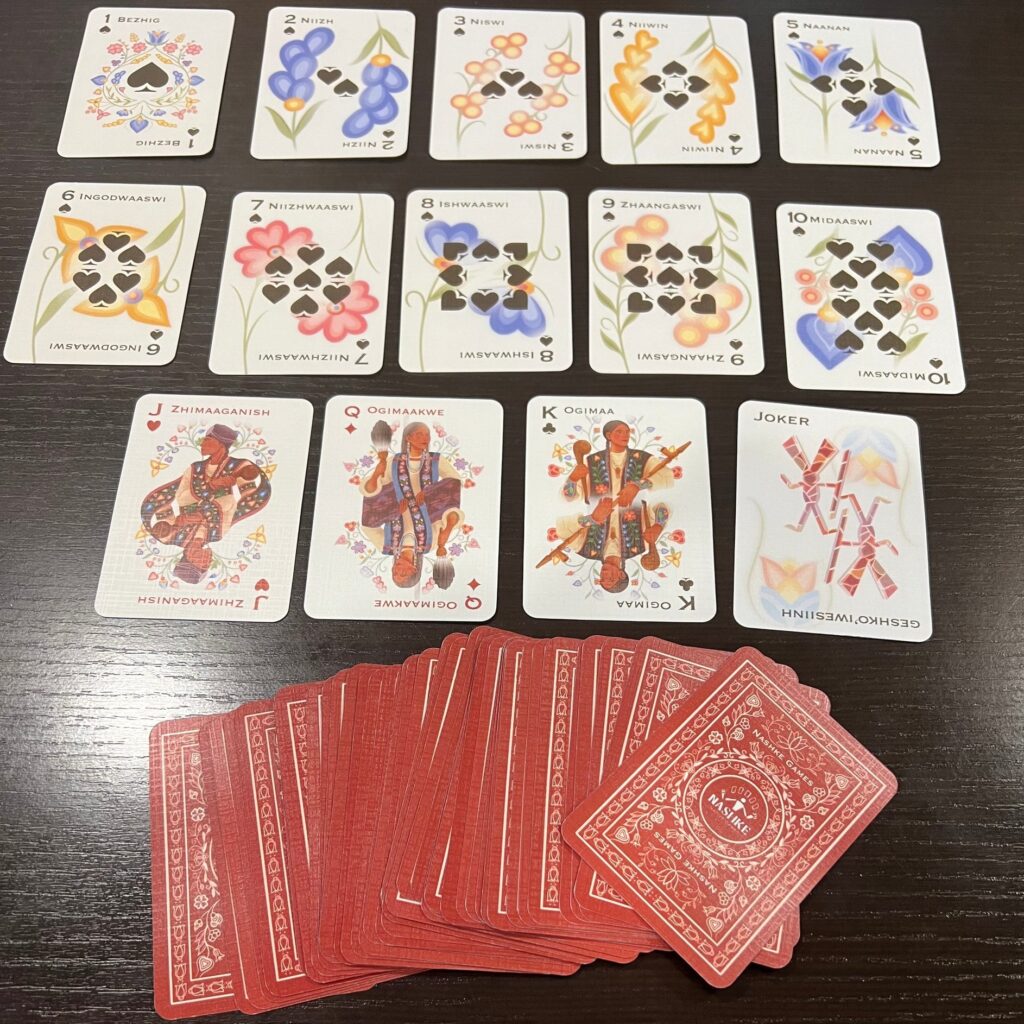
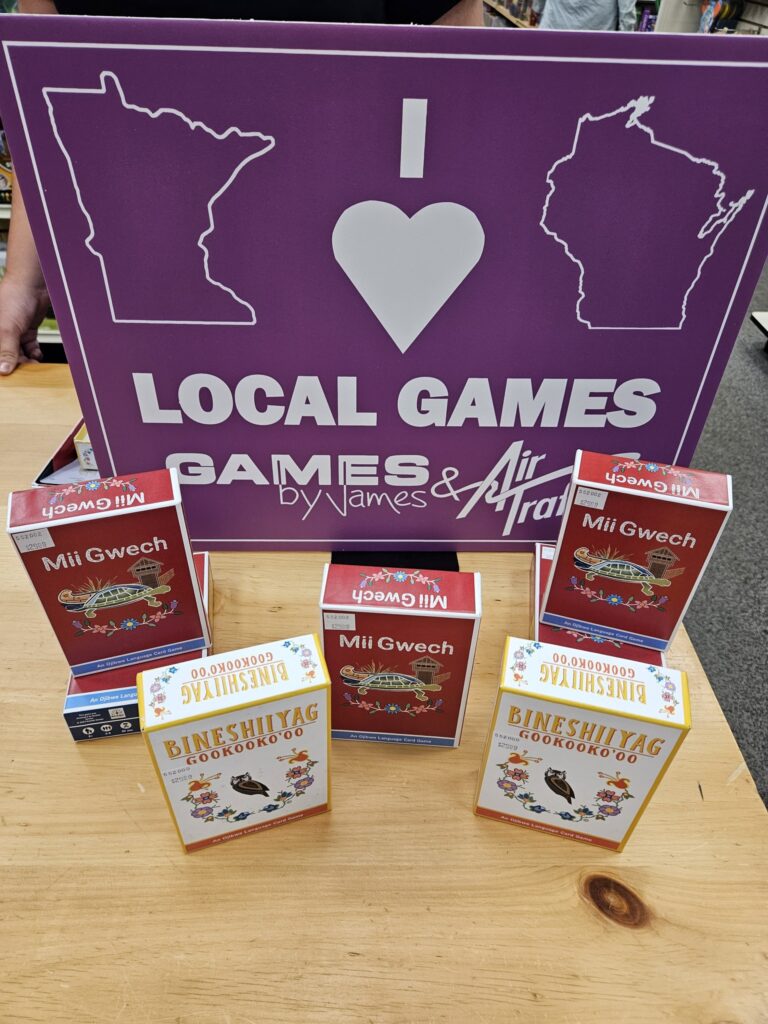
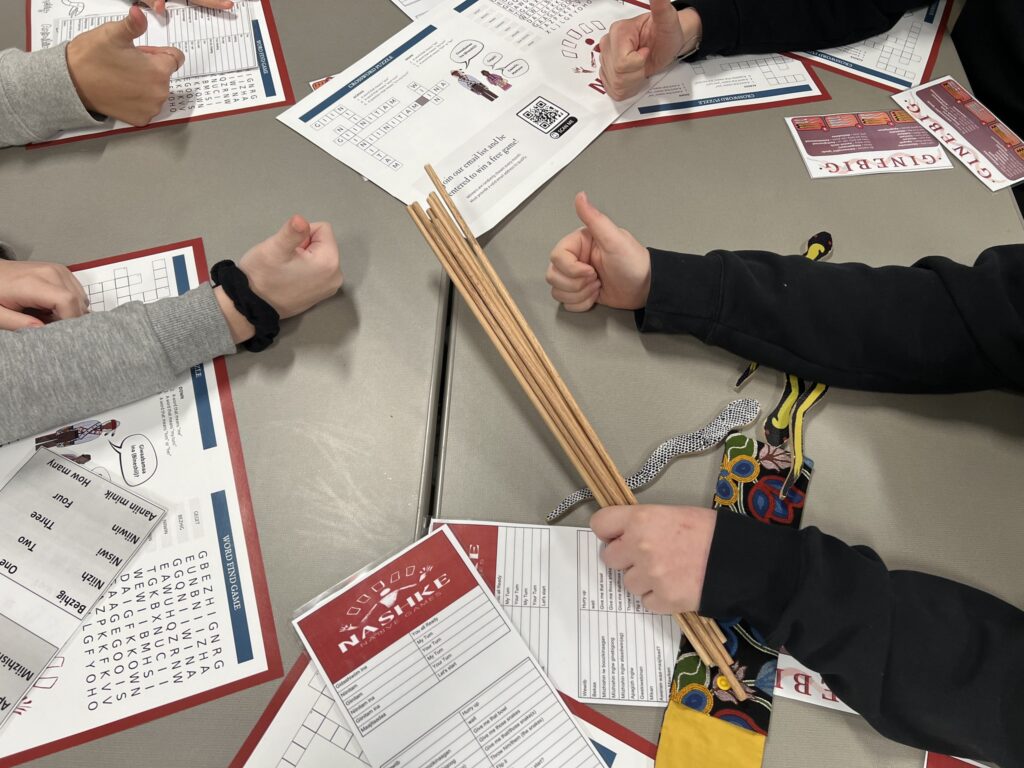
“I just find it such a valuable way to get … excited about the language and about their culture and respect too,” Schussman says, overhearing students using words learned in the games.
“I think that a lot of times we get nervous to try or we don’t want to do something wrong, so then we don’t. But I’ve found that through the games, you’re a lot more willing when it’s in a fun, laughing atmosphere to just try.”
Goji’ewizi: Just try.
